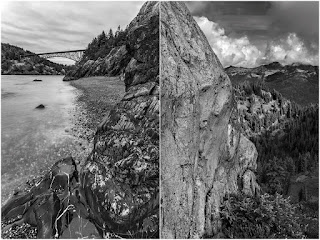
"I have met with but one or two persons in the course of my life who understood the art of Walking, that is, of taking walks — who had a genius, so to speak, for sauntering, which word is beautifully derived 'from idle people who roved about the country,' in the Middle Ages, and asked charity, under pretense of going a la Sainte Terre, to the Holy Land, till the children exclaimed, 'There goes a Sainte-Terrer,' a Saunterer, a Holy-Lander. They who never go to the Holy Land in their walks, as they pretend, are indeed mere idlers and vagabonds; but they who do go there are saunterers in the good sense, such as I mean. Some, however, would derive the word from sans terre, without land or a home, which, therefore, in the good sense, will mean, having no particular home, but equally at home everywhere. For this is the secret of successful sauntering. He who sits still in a house all the time may be the greatest vagrant of all; but the saunterer, in the good sense, is no more vagrant than the meandering river, which is all the while sedulously seeking the shortest course to the sea."
Postscript: Little did I know back in November of last year (in this
post) that the word "saunter" would come back and haunt me - haunt all of us; unexpectedly, to be sure, and not in a bad way, but mindfully and full of joy. For what better way is there of dealing with today's unrelenting virus-induced stressors than succumbing to the gentle pleasures of Thoreau-ian sauntering? And so, my younger son (having now advanced far beyond his
early Polaroid experiments and maturing quite nicely as an budding-artist with a Fujifilm XT-2 in hand) and I have been taking daily saunters to rejuvenate our sequestered souls. The impressionistic image above (which captures the gentle swaying and swirling of reeds of grass in a shallow creek along a footpath near our home in northern VA) may not be a Wagnerian panorama of, say, the Scottish highlands, but it is no less able to depict the ineffable effervescence of our lives. Though I started our saunter in a decidedly dour mood (minus my normal commute time, my "work days" are now effectively 3 hours longer!), it took but a few precious moments immersed in a gentle forest breeze, the soft burbling of water and the glimmer of the day's last sunlight on a tiny reed of grass to put smiles back on our faces. Thank you, Mr. Thoreau, for reminding me of the timeless - and
rejuvenative - pleasures of sauntering!



















